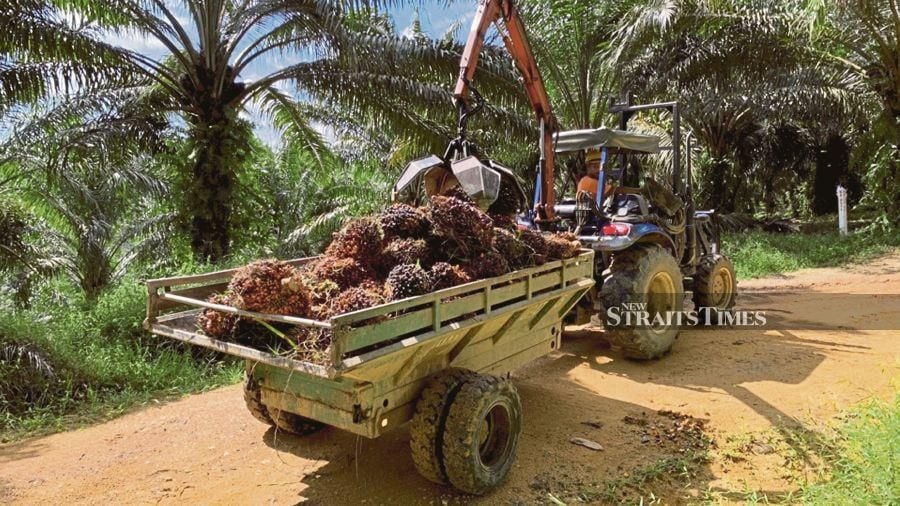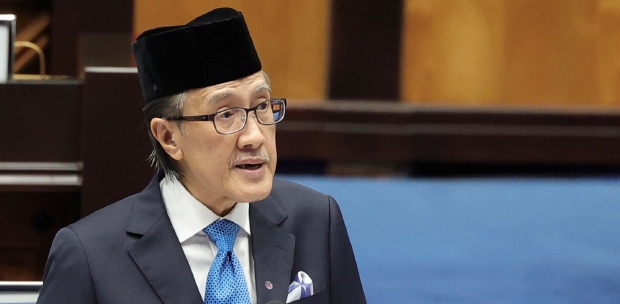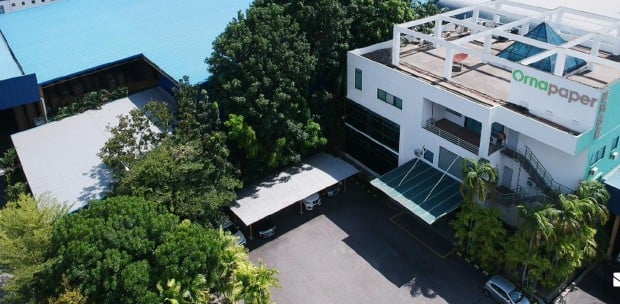THAT our economy is heading for a turmoil is a concern. Numbers do not lie. We are over dependent on a narrow economic base. We rely too much on low-cost labour that is mainly imported. Any disruption in supply would move our economy into crisis point.
We saw how the plantation sector was ravaged by the labour crunch. Not to mention the services sector, especially restaurants. The darling of our economy — oil and gas — is not going to last forever.
As the world embraces low carbon, fossil energy is not part of the equation. Even palm oil, which is the favourite in the plantation business, is fast reaching its limit in land availability.
We have long said goodbye to rubber, which used to be the leader in the plantation industry. We need a new economic direction if we are to achieve a sustained economic growth.
This fact was intimated at the recent Umno general assembly by one of the party veeps, Datuk Seri Johari Abdul Ghani.
I cannot agree more with his view that taking good care of the economy is a prerequisite for resolving all other social concerns such as disharmony, inequity and instability.
We are seeing signs of economic fragility, including the poor performance of the ringgit and other indicators. We cannot forever be blaming the external forces for our failings.
We need to get our act together now if we are to avoid similar economic casualties as experienced by Sri Lanka, Argentina and Pakistan.
Our high spending on food and fuel subsidies has been flagged by economists as a major concern that should be addressed.
Most experts agree that the focus of the economy should be on diversification, innovation and sustainable development. Malaysia has traditionally relied heavily on its natural resources, particularly oil, gas and palm oil.
To ensure long-term economic stability, there should be a focus on diversifying the economy by developing sectors such as manufacturing, services, technology and tourism.
By expanding into new industries, Malaysia can reduce its dependence on a few key sectors and create a more resilient and balanced economy.
The recent announcement by the government to revisit our Industrial Master Plan (IMP 2) is most welcome. The new plan should bring back the earlier strategy of manufacturing plus-plus that was articulated under IMP 2.
Emphasising innovation is crucial for Malaysia to stay competitive in the global market.
Encouraging research and development, fostering entre- preneurship and promoting a culture of innovation will help drive productivity and create new opportunities.
Investing in education and skills development, particularly in science, technology, engineering, and mathematics (STEM), will provide the foundation for a knowledge-based economy.
Malaysia should prioritise sustainable development to address environmental challenges and promote long-term growth.
This includes transitioning to a low-carbon economy, promoting renewable energy sources and adopting green technologies. Sustainable agriculture and responsible resource management should be key focus areas to ensure the preservation of natural resources and biodiversity.
Investing in human capital is essential for economic growth.
Enhancing the quality of education and skills training, promoting lifelong learning and fostering a conducive business environment will attract investment, encourage entrepreneurship and boost productivity.
Recent reports about students losing interest in higher education is disturbing.
Emphasising digital skills and technological literacy will be particularly important in the era of digital transformation. Building robust and modern infrastructure is crucial for economic development.
Malaysia should focus on developing efficient transportation networks, including roads, railways, ports and airports, to facilitate the movement of goods and people.
Investing in digital infrastructure such as high-speed Internet connectivity and data centres, will support the growth of digital economy.
We should continue to promote trade and investment to expand market access and attract foreign direct investment. Strengthening bilateral and regional trade agreements, streamlining regulations and improving ease of doing business will enhance competitiveness and position the nation as a regional hub for trade and investment.
By focusing on diversification, innovation, sustainable development, human capital development, infrastructure development and promoting trade and investment, Malaysia can build a resilient and inclusive economy that drives long-term growth, creates job opportunities and improves the standard of living for its citizens.
Once the economy is in good shape, all the other worries will simply melt away.
The writer is a professor at the Tan Sri Omar Centre for STI Policy, UCSI University





